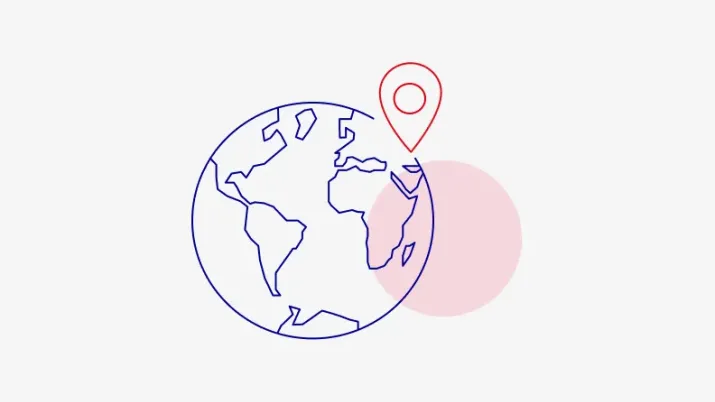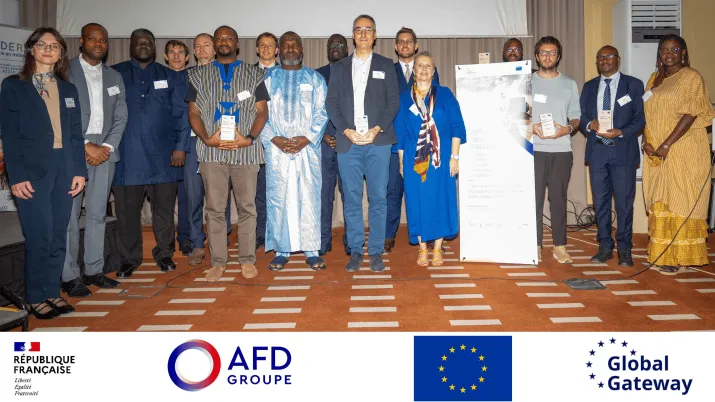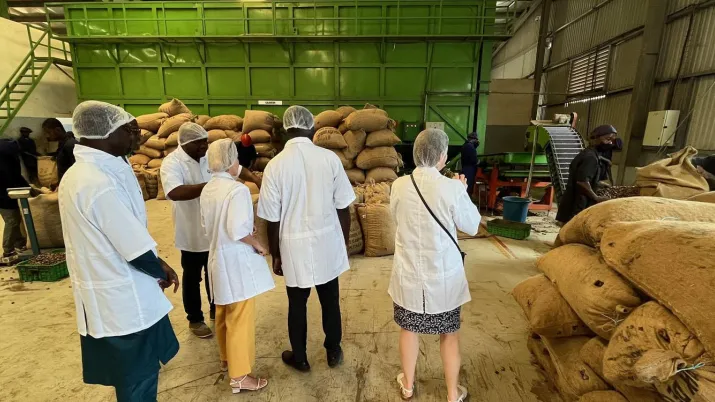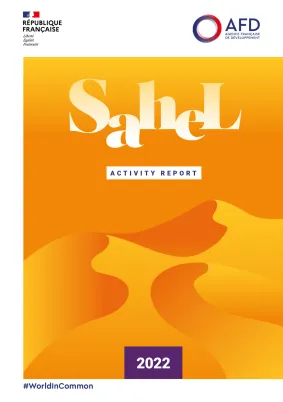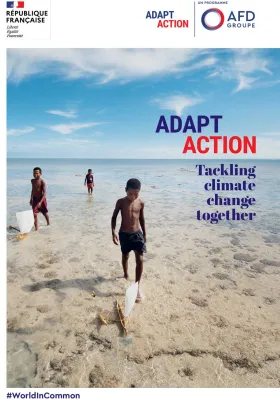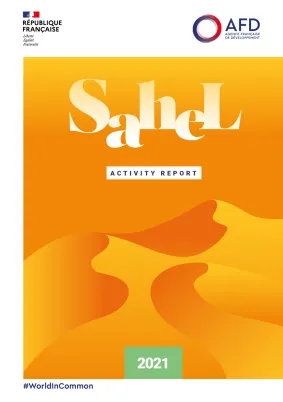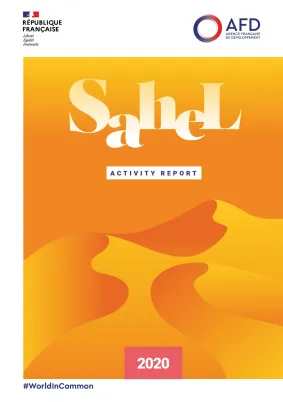Share the page
Senegal
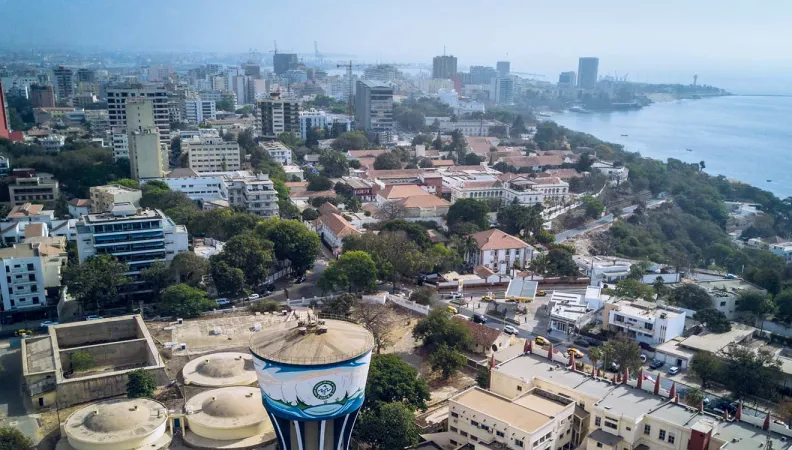
As a long-standing partner of Senegal, AFD Group places its full range of financial instruments at the service of local economic and social development actors (including the State, public companies, the private sector and NGOs) to support an inclusive development model that creates jobs and promotes sustainable and environmentally friendly infrastructure.
Context
Senegal is located in the westernmost part of Africa, on the Atlantic coast, and has 15.3 million inhabitants. It is the second largest economy in French-speaking West Africa and has been experiencing strong growth since 2014.
Indeed, the country can rely on a number of advantages: its democratic tradition, its geographical position, a young population, a vast agricultural and mining potential and the dynamism of its diaspora.
However, it needs to deal with an informal economy which deprives the State of major resources, demographic pressure which increases poverty, and a youth suffering from the lack of jobs. There is, in addition, the environmental emergency: with its 531 km-long coastline, Senegal is particularly vulnerable to climate change.
AFD has been a partner of the country since 1947 and is a key correspondent for the Senegalese authorities. It mobilizes its entire range of financial tools to finance projects that contribute to sustainable and environmentally friendly growth with a concern for reducing inequalities.
AFD's Senegal office is directly attached to the Greater Sahel regional office in Ouagadougou.
Our approach
"AFD and Senegal: Promoting inclusive growth and protecting the environment"
Population growth exacerbates the challenge of welcoming students and ensuring their academic success, but it is also an asset for the economy. AFD is working with Senegal to strengthen its human capital through education, vocational training and higher education, with the aim of addressing inequality and giving every child and young person the means to learn and find their place in society.
- Contributing to quality, accessible education: with the support of the Global Partnership for Education, AFD is financing PADES II (€117m). By financing infrastructure projects in the education sector, AFD has enabled the construction or rehabilitation of 54 schools throughout the country.
- Strengthening vocational training: ten centers have been built or renovated in strategic sectors (building and public works, agri-food, tourism, port trades). These centers are managed under public service delegation agreements between the government and the private sector, an approach that has achieved employment rates of nearly 82%. The FIT program, developed in conjunction with the Dakar 2026 Youth Olympic Games, calls on Team Europe to enhance the quality and attractiveness of vocational and technical training in the run-up to the Games, in order to maximize their legacy in terms of jobs.
- Supporting vocational higher education: AFD is supporting the creation of Higher Institutes of Vocational Education (Instituts Supérieurs d’Enseignement Professionnel - ISEP). The ESPOIR-Jeunes project, co-financed with the World Bank, plans to establish eight new ISEPs and train 17,000 learners per year, with a focus on the inclusion of women.
Achieving the Sustainable Development Goals requires health systems able to provide access to quality healthcare for all. Sport and culture are vehicles for social cohesion and are also key drivers for the sustainable and inclusive development of Senegalese society. AFD supports projects with a high social impact in the following three areas:
- Improving the health system: by providing women with access to a package of improved services during pregnancy at a reduced cost, the projects financed by AFD are contributing to reducing maternal and infant mortality in the regions of Louga, Sédhiou and Kolda. AFD is also assisting the Government of Senegal with its reform plan to revitalize the pharmaceutical sector and strengthen its vaccine sovereignty
- Supporting cultural and creative industries: AFD is contributing to building an ecosystem of culture that creates jobs, generates growth and catalyzes change, with the structuring of the audiovisual sector and professionalization of performing arts
- Promoting sport for all: AFD takes action for the benefit of Senegalese youth, by rehabilitating sports facilities, sharing expertise in training and accompanying athletes and the development of socio-educational programs through sport. It is supporting a total of 12 Senegalese CSOs.
Regional development is one of AFD Group’s priorities in Senegal. The objective is to make cities real drivers of growth, while improving the quality of life of people, with a focus on the following three issues:
- Facilitating urban mobility: AFD has co-financed the construction of Blaise Diagne International Airport (AIBD), the first toll motorway in West Africa, linking Dakar to AIBD, and the Regional Express Train (TER), a 38-km mass transport rail system from Dakar to Diamniadio with a capacity of 80,000 passengers a day. AFD is also financing the transformation of the bus network in Dakar, to improve the network and transport conditions
- Developing resilient agriculture: the agriculture sector is the largest provider of jobs and is considered as the growth engine of the national economy. AFD works to modernize family farming and support food self-sufficiency through diversified, sustainable and competitive agriculture, creating decent rural jobs for women and young people
- Improving access to basic services and people’s living conditions: AFD supports a number of projects with its European partners which aim to increase the wastewater treatment capacity, secure the drinking water supply system in Dakar and increase access to electricity in rural areas. AFD also supports the decentralization process by developing the capacities of local authorities.
Through the projects financed and its strong commitment in favor of various international initiatives (COP, facilities, Green Climate Fund), Senegal is one of AFD’s main partner countries in the fight against climate change. AFD supports the Government of Senegal in the following areas:
- Improving the management and preservation of natural resources, for example, through the conservation and development of marine and coastal ecosystems. This involves assisting the Government of Senegal with the implementation of its policy on marine protected areas and its fight against coastal erosion in the Saint-Louis region. AFD is providing a response in the short term, through the construction of a dyke to protect property and people, and in the longer term by promoting an integrated approach to the management of coastal areas
- Taking action for sustainable territories for the benefit of people by promoting integrated flood management and accelerating the country’s energy transition. AFD is also assisting the Government of Senegal with the development of sustainable cities through integrated waste management and financing for greener public transport systems such as the Regional Express Train
- Accompanying Senegal towards low-carbon and climate-resilient development trajectories: AFD is providing technical and financial assistance for the implementation of the Nationally Determined Contributions (NDCs) through its Adapt’Action program and with technical support from Expertise France.
AFD is supporting the Senegalese government in strengthening the country’s productive and entrepreneurial fabric in order to promote sustainable job creation and financial inclusion, particularly for women and young people.
- Supporting entrepreneurship among young people and women: through the Project to Support and Promote Entrepreneurial Initiatives (PAVIE), coordinated by the DER/FJ, more than 24,000 initiatives have been financed, enabling the creation or consolidation of nearly 143,000 jobs. The project has also facilitated the establishment of 6,300 businesses and the training of 18,000 entrepreneurs, the majority of whom are women. Building on this success, a second phase was launched in 2025 with a €25 million sovereign loan from AFD.
- Strengthening agricultural financing and the green transition: AFD is supporting La Banque Agricole (LBA) with a €20 million credit line for small producers, cooperatives, and micro, small, and medium-sized enterprises in priority sectors (rice, cereals, peanuts, horticulture, cashews) and €4 million in technical assistance via delegated EU funds. The project aims to support investment in production for more than 1,000 farmers and 250 micro, small and medium-sized enterprises in the sector, with a target of at least 20% female beneficiaries and a minimum of 30% green financing, half of which will be dedicated to climate change adaptation.
- Promoting the financial inclusion of micro, small and medium-sized enterprises: AFD is supporting the National Bank for Economic Development (BNDE) through a non-sovereign credit line of €15 million, along with €500,000 in technical assistance. At least 50% of loans granted to micro, small and medium-sized enterprises are intended to finance “green” projects (renewable energy, wastewater treatment, eco-tourism, etc.). In addition, a geographical objective aims to direct at least 20% of the loan volume to the most disadvantaged regions of the country, notably Matam, Tambacounda, Kédougou, Kolda, Kaffrine, and Louga.
In the field
Below, find the country's projects, news, publications, and contact details in one click.
Projects
News & Press Releases
Digital Energy Challenge 2025: Five projects recognized in Dakar
Published on November 27, 2025
The IDBio Project: transforming biosourced wastes for more sustainable industries
Published on June 3, 2025
A survey on the perception of development policy in four African countries
Published on February 17, 2025
Publications & Media
Key figures
-
€2.2 billion committed since 2012
-
115 projects financed since 2012
-
4,400 SMEs supported and 40,000 direct and indirect jobs created since 2010

